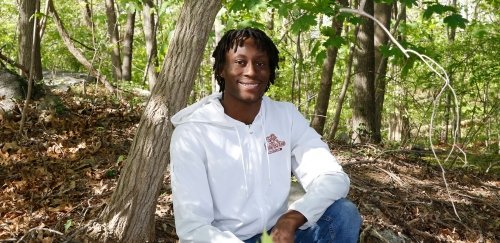
“Kwesi doesn’t just study biology, he lives it,” says Asst. Prof. Britt.
“Striving for greatness is something my parents ingrained in us as children,” says 24-year-old Kwesi Amoa, biology major and captain of the RIC wrestling team.
“My parents would always ask us, ‘Who are you?’ And we would reply, ‘I am the greatest creation on earth, second to none since the day of my birth, sir!’ or ‘ma’am!’ depending on if it was our mom or our dad asking. Then they’d say, in a sing-song voice, ‘I can’t hear you.’ And we’d say it again even louder, ‘I am the greatest creation on earth, second to none since the day of my birth!’
“Saying those affirmations and having time to live and grow with them over the years really helped shape the person I am and the mindset I have when I look at a task I want to accomplish. I know I can do whatever I put my mind to,” he says.
Indeed, Amoa has excelled athletically and academically at Rhode Island College. Faculty describe him as “a remarkable individual, smart, mature, always prepared and a role model to other students.”
A native of Central Islip, New York, Amoa was recruited by Rhode Island College Coach Murray to play for RIC’s wrestling team.
“I chose Rhode Island College because it had a very welcoming environment,” he says. “I also enjoyed the support systems they have here for wrestlers. I was an honors student in high school. I knew RIC wouldn’t let my grades slip in order to play for the team; they saw me as a student first before an athlete.”
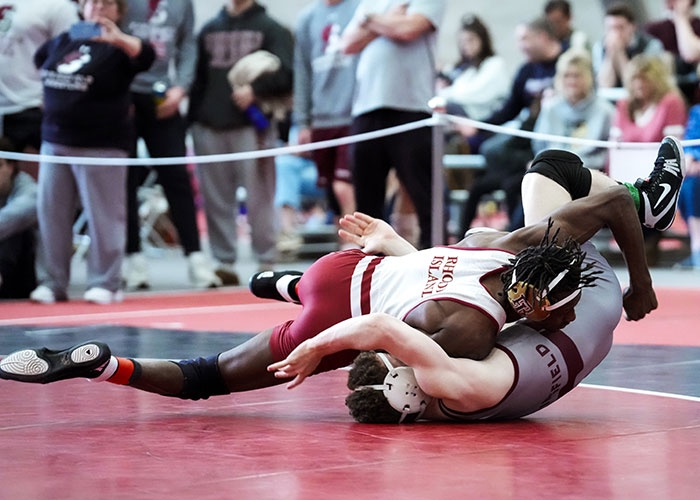
As a 133-pound wrestler, Amoa’s greatest strength, he says, is his determination. He earned the Most Dedicated Wrestler award in his freshman year; the Scholar All American for winning 75 percent of his matches in his junior year; and throughout his four years at RIC, he achieved the 3.0 Award for averaging a 3.5 GPA each wrestling season.
When he wasn’t pinning down opponents, Amoa was lifting 40-pound bags of soil in his off time doing what he loved – gardening. Showing his unflagging determination, he created a vegetable garden in the parking lot of his Providence apartment building.
“I threw four or five inches of soil on top of the concrete, and it worked,” he says. “I grew corn, cucumbers and butternut squash.”
Farming is in his blood. “When I was growing up, my dad was always gardening. We had about a quarter acre of land and about 25 to 30 chickens. My heritage is Ghanian and our religion is Akan. It’s a traditional West African religion where we basically eat a lot of halal food, meaning food that is hand-slaughtered and processed by us. I grew up in that homestead, fresh-food, farm-to-table environment my entire life.”
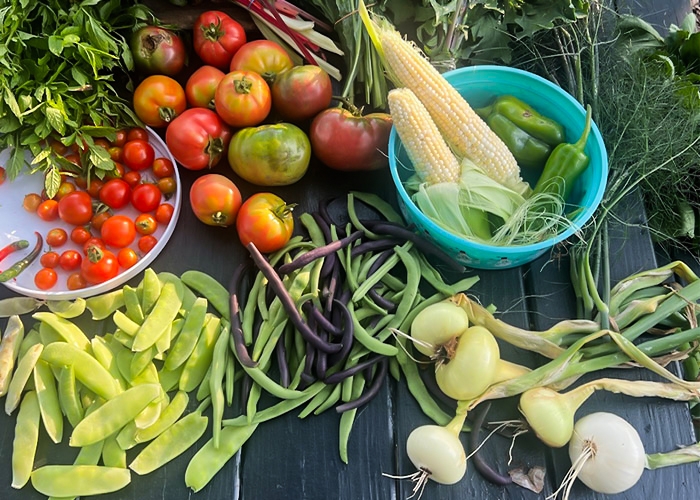
“Though my dad’s doctorate is in chemistry, if he could go back to school he’d be a botanist [a scientist who studies plants],” Amoa says. Instead of joining the Boy Scouts, Amoa would go fishing with his dad, hike with him in the woods and explore different species of trees and animals.
He also worked at his father’s business – a recycling center: “We take in people’s bottles and cans, sort them and sell them back to the companies so that they can be recycled and repurposed. With some of the profits, my dad creates student scholarships within the Queens community. I started helping out at the age of eight or nine.”
Amoa also ran a few businesses of his own. In elementary school he sold candy and managed lemonade stands. In high school, he sold water bottles in the street. “Eventually, I told my dad he’d have to pay me more because I was making more money and doing less work than I did at his recycling center. I’ve always been a businessman,” he says, with a smile.
True to form, Amoa started his own business, K & M Land Stewards in Rhode Island, last year. “My girlfriend, Morgan, and I started this business to focus on restoration, recycling and creating the best natural environment for the land. Essentially, we try to restore land back to its natural state through biodynamic farming.”
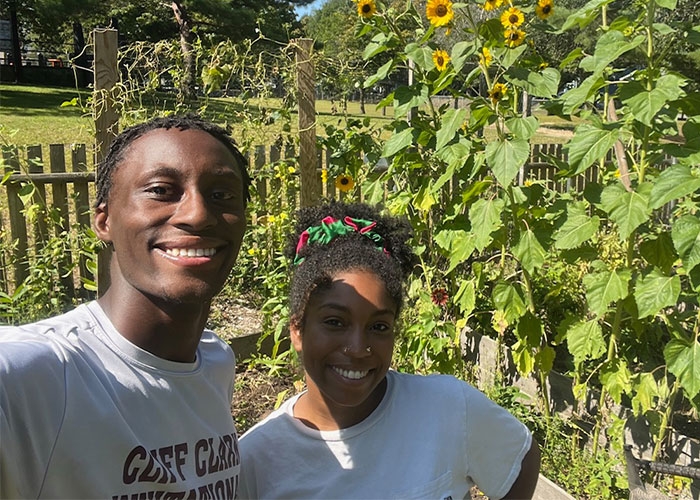
Biodynamic farming is land management that adopts what you would see in flourishing natural ecosystems. That means prioritizing the health of the soil, the water and biodiversity, and using resources that can be replenished and renewed, such as solar energy and rainwater, so that the ecosystem will flourish on its own with minimal human intervention.
“Kwesi doesn’t just study biology, he lives it,” says Assistant Professor of Biology Deborah Britt.
Last year the City of Providence gave K & M Land Stewards control of the community garden in Corliss Park, located in the city’s North End.
“The public wasn’t maintaining the garden, so, the city was looking to get rid of it,” Amoa says. “I was walking my dog through the park and came across the abandoned garden. The fences were busted and the garden beds were completely overgrown with weeds. My girlfriend suggested I get in contact with Providence Parks to see if I could restore it.” The city literally gave K & M Land Stewards the keys to the land.
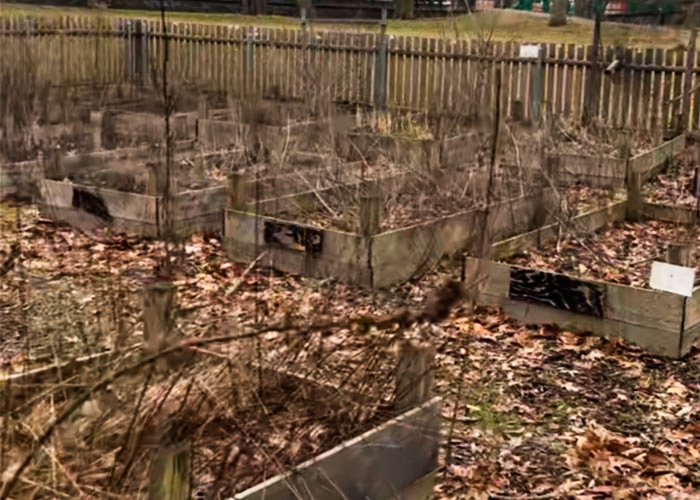
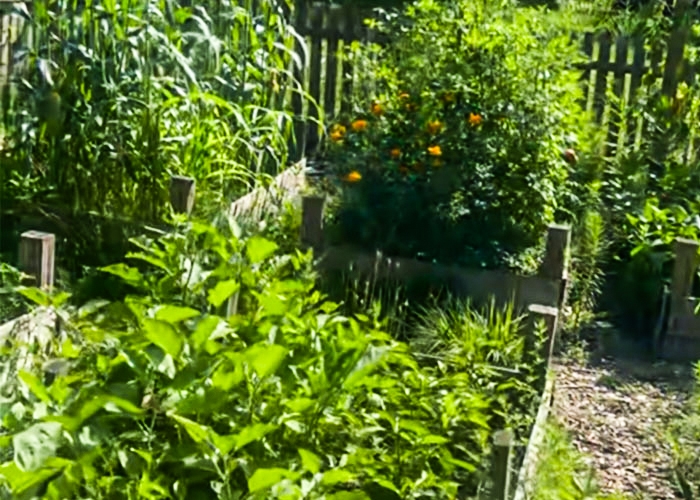
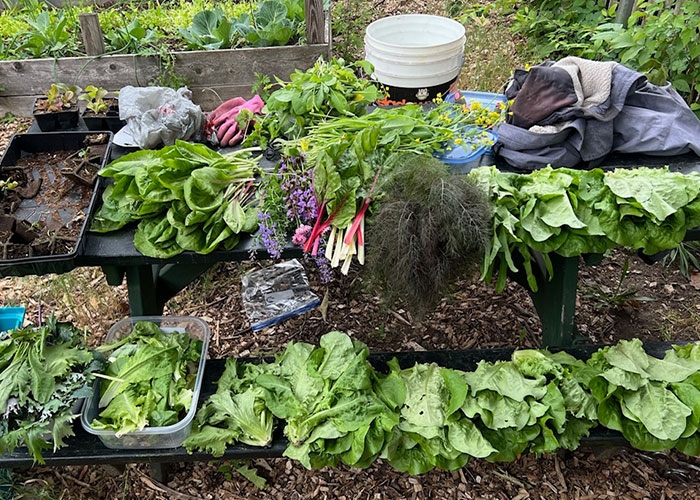
“Our goal is to provide access to fresh food, gardening and education to underserved and underrepresented communities in the area,” he says.
Last summer the Davy Lopes Recreation Center and West End Recreation Center invited Amoa and Morgan to lead a youth gardening program for children ages eight to 14. “The children worked with us in filling the garden beds with soil, planting crops and harvesting the produce,” he says.
In the future, Amoa and Morgan hope to buy their own land where they can grow their own food, sell their produce at local farmer’s markets and create education programs for underprivileged and underserved communities and youth groups.
“We’d teach them about permaculture, land stewardship, how to grow their own food and to have a general respect for the land,” he says. “It’s about going back to what we were meant to be doing – farming, bartering, creating community. I think a lot of people are realizing the importance of returning to the land.”
To find out how you can volunteer or make donations to the Corliss Park community garden, email kandmlandstewards@gmail.com.
Also, learn more about RIC’s B.S. in biology program.
